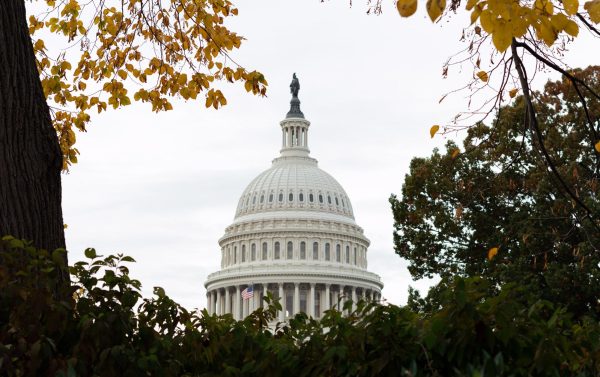Citizens urged to look past fear in light of travel ban
February 6, 2017
“When I lock the doors of my home at night, it is not because I hate the people outside my home. I lock them out because I love the people inside my home.”
This supposed heartfelt sentiment of Donald Trump’s immigration ban supporters begs one question: what if your neighbors were being hunted down and persecuted in their home?
On January 27, President Trump signed an executive order temporarily banning travel to the United States from seven Muslim-majority countries: Iraq, Syria, Sudan, Iran, Somalia, Libya and Yemen.
Here’s where it gets tricky: none of these countries has ties to extremist threats to the United States. The only ISIS sympathizer-related attacks have been carried out by U.S. born citizens.
The narrative of our president and supporters of this executive order has focused on two points: a) Obama did the same exact thing in the past and b) this is not a Muslim ban, it is a ban of possible terroristic threat.
In 2011, two Iraqi immigrants sought refuge in Bowling Green, Ky. Soon after, it was learned that these two men lied about their past ties with terrorism. After this discovery, former president Barack Obama sought to strengthen the vetting process, and background checks were required for those coming from Iraq.
The main and most vital difference is there was no outright ban.
“But this is not a Muslim ban! We are not pinpointing people of a specific religion!” Completely contrary to this reoccurring sentiment, President Trump told the Christian Broadcasting Network that he would give Christians in these countries special status, saying that it is practically impossible to come into the U.S. if you are a Syrian Christian.
With all due respect, this statement is completely false. The PEW Research Center reports that Christians make up only 5.2 percent of the Syrian population, while 92.8 percent are Muslims. This is what leads to the small amount of Syrian Christians that make up slightly more than 1 percent of refugees.
His attempt at isolationism shows weakness and turns away the real victims of terroristic persecution— the 82 to 97 percent of Muslims who have lost their lives due to terrorism, according to the National Counterterrorism Center’s 2011 report. After years of striving for normalcy post-9/11, American Muslims have to answer for a small population of extremists once again.
Unfortunately, numbers and statistics don’t speak to many. As an immigrant myself, the daughter of a Palestinian mother and a Pakistani father, a woman surrounded by Islamic faith, and a southerner living in Kentucky for the past 16 years, I urge you to open your arms to our fellow neighbors and look past the irrational fear your government is attempting to instill in your hearts.
Email opinions@ kykernel.com.






















































































































































